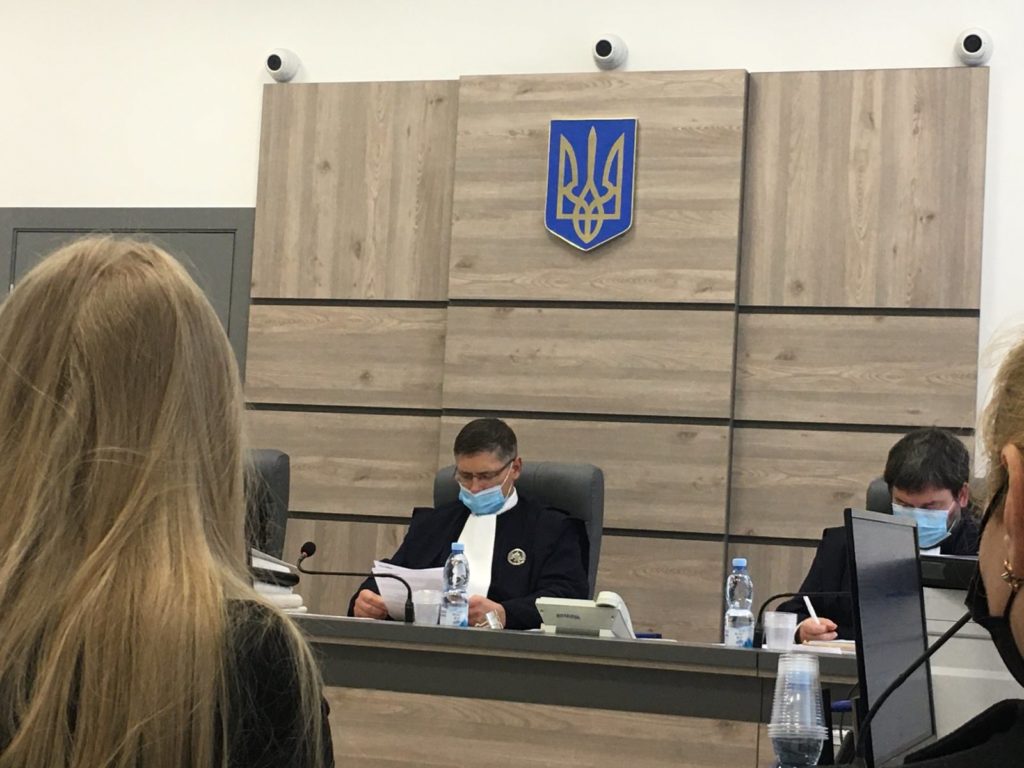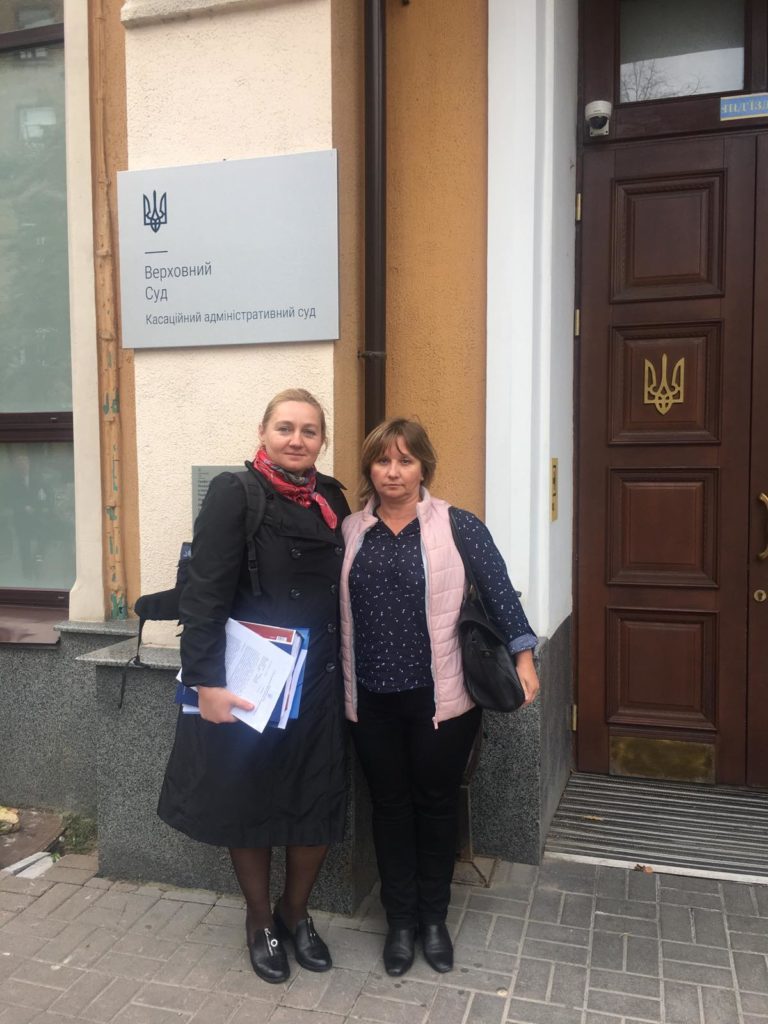Today the Supreme Court, consisting of a panel of judges of the Administrative Court of Cassation including judge-rapporteur Kravchuk V. M., judges: Bernazyuka Ya. O., Starodub O. P. heard the case № 807/1314/17 on cassation appeals of Fabrytsiy Vasyl Vasyliovych, 3rd person: International charitable organization “Environment-People-Law” regarding the decision of the Lviv Court of Appeal of May 4, 20181, which overturned the decision of Zakarpattia District Administrative Court of January 10, 2018.2
The appeals were filed in June 2018 and waited for three years for consideration.
Svydovets is a high-mountainous territory of Zakarpattia region (not to be confused with the village of the same name in Chernihiv region). It is part of the Svydovets-Pokutsko-Marmaros district of the Central European province of the European deciduous region. This definition is given by geobotanical characteristics. In total, the Svydovets massif covers up to 15,000 hectares (150 square kilometers). This area was planned to be united into the national nature park of the same name. The Svydovets massif is a mountainous territory of the Carpathians.
Back in 2017, the Rakhiv and Tyachiv district state administrations approved detailed plans for the territories (DPT) of the Svydovets tourist and recreational complex, in violation of Article 12 of the Law of Ukraine “On Regulation of Urban Development Documentation”. This was described in detail in the articles “Svydovets: the authorities” forgot “about the effect of some laws?” and “The mountains also need the law” in the electronic newspaper Day.34 Relevant explanations were provided in the court as well.
The Law “On Regulation of Urban Development” clearly states that the planning schemes of the mountain areas of the Carpathians are developed according to the decision of the Cabinet of Ministers of Ukraine (Article 12). The Ministry of Regional Development clarified that the Cabinet of Ministers may delegate such functions to regional administrations, but not to district administrations. Moreover, in the situation with the creation of a resort in Svydovets, the territories of two districts are supposed to be used, which also requires coordination and resolution of many issues at the regional level, including impact assessment. Therefore, in any way, the level of district administrations is not sufficient to determine functional allocation of land lots of Svydovets mountain massif. We hope that the court will pay due attention to this issue in the narrative part of the court decision.
In accordance with the developed detailed plan of the territory (DPT), planned activities for the construction of the resort “Svydovets” cover such areas as forestry (at the stage of EIA – involves cutting down thousands of hectares of forests), energy (at the stage of EIA – involves laying new power lines), transport ( at the stage of EIA – involves creation of new transport connections, construction of roads and airports), waste management (at the stage of EIA – involves assessment of waste generation amounts, construction of sewerage and treatment facilities), water resources (at the stage of EIA – involves an assessment of permits for construction of reclamation systems and separate objects of engineering infrastructure of reclamation systems). Such activities should have been reflected in a detailed plan of the territory and properly assessed. In addition, such an assessment should take into account the existence in this area of the Emerald Network sites, environmental network and protection zone of the Carpathian Biosphere Reserve. However, exactly because of the lack of a proper detailed plan of the territory, these issues have not been examined.
Prevention of negative consequences during the implementation of an adopted state planning document, such as, for example, a detailed plan of the territory, is possible only through their proper assessment by means of strategic environmental assessment (SEA). Lack of detailed information at the stage of developing a detailed plan of a territory makes it impossible to conduct a qualitative environmental impact assessment at the stage of EIA! Thus, strategic environmental assessment has its tasks while environmental impact assessment has different tasks, and there is no legal basis to replace one procedure with another.
Another question is why the detailed plan of the territory was developed and approved by district administrations while regional administration applied for EIA procedure.
According to the legislation, a detailed plan of the territory outside the settlement is considered and approved by the relevant district state administration within 30 days from the date of its submission.
The developed detailed plan of territories for the construction of the future complex “Svydovets” covers not one district but two districts – Rakhiv and Tyachiv. Therefore, the norm of the law on the relevant district administration cannot be complied with, because the territory described in the detailed plan of the territory extends beyond one district.
Has the legislator provided an action plan for this case? Yes. The Order № 290 of 16.11.2011 “On approval of the Procedure for development of urban planning documentation” states that in case of absence of an administrative district, DPTs are developed and approved by the decision of regional administrations. This means that because parts of the territory of Rakhiv and Tyachiv districts, which are included in DPT for the construction of the resort “Svydovets”, do not have a common administrative district, and, accordingly, the decision to develop such a DPT should be taken by Zakarpattia Regional State Administration.
In addition, according to Article 12 of the Law “On Regulation of Urban Development”, planning schemes for certain parts of the territory, which include the mountainous territory of the Carpathians, must be developed according to the decision of the Cabinet of Ministers of Ukraine. The mountainous territories of the Carpathians also include the territories of Rakhiv and Tyachiv districts, in accordance with the criteria defined in the law “On the Status of Mountain Settlements in Ukraine.”
Furthermore, the law “On the General Scheme of Territorial Planning of Ukraine” identifies particularly valuable territories of Zakarpattia region and provides for planning the development of these territories at the state level.
Therefore, when planning such a large-scale construction project within the region, the decision to develop DPTs and their approval should be made by an authority no lower than the regional administration, and given the special status of the Carpathian region, especially the mountainous Carpathians, such a decision should have been made by the government.
As we can see, violation of the procedures of development and adoption of state planning documents leads to the appearance of low-quality documents that do not allow to approve decisions aimed to prevent negative consequences for the future both at the stage of strategic planning and at the stage of evaluation of private individual projects. Of course, the situation around the construction of a new resort “Svydovets” can be corrected by canceling the existing detailed plans of territories and developing a new detailed plan of the territory in compliance with all legal requirements.
It should be noted that as a result of the occupation of the Autonomous Republic of Crimea and parts of Donetsk and Luhansk regions, Ukraine has lost a significant part of particularly valuable natural areas. Therefore, public officials of all levels should be particularly careful about preservation of those natural territories of Ukraine that are still preserved in their original form.
Today, the Supreme Court of Ukraine partially upheld the cassation appeals, overturning the decisions of the lower courts and remanded the case to the court of the first instance.
In view of the course of the proceedings and the questions put to the parties by the judges, it can be assumed that the case is scheduled for consideration in connection with the established jurisprudence in the case №522/5362/17, which states that the ability of a legal act to extend its validity, albeit to a certain range, but impersonal individuals is a sign of normativeness. This conclusion was made by the Supreme Court in Resolution №522/5362/175 and most likely this decision is taken as a basis when making a decision in our case.
At present, the construction of the resort “Svydovets” is impossible and the chances of preserving the unique nature of Svydovets are increasing. In addition, such a court decision will allow all participants of today’s rally in support of the parties to the lawsuit Free Svydovets, Ukrainian Climate Network, Ekoltava NGO, Ecoclub NGO and others to join the case on the merits.
Many thanks to everyone who participated in the action “The last chance to save Svydovets” and was at the Supreme Court supporting civil society activists in this court proceeding.
Further information about the case can be found at web-page epl.org.ua.
1 https://reyestr.court.gov.ua/Review/73842742
2 https://reyestr.court.gov.ua/Review/71714520
3 https://day.kyiv.ua/uk/blog/suspilstvo/svydovec-vlada-zabula-pro-diyu-deyakyh-zakoniv, as well as other articles
4 https://day.kyiv.ua/uk/article/tema-dnya-cuspilstvo/goram-tezh-potriben-zakon
5 https://zib.com.ua/ua/147547-oskarzhennya_planu_zabudovi_vs_ukazav_na_nyuans.html



